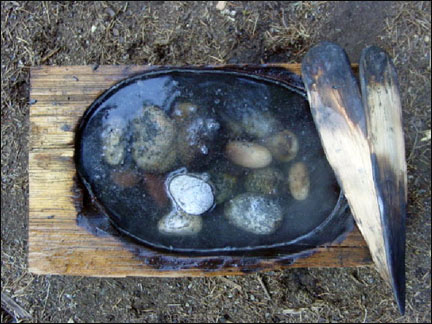From microwaving popcorn to roasting potatoes around a car’s hot exhaust pipe, humans have developed a variety of cooking methods by which we render food safer, more digestible, and more palatable. Stone-boiling is one of my favorite Stone Age (pardon the pun) methods. Some alternatives for boiling food are energy intensive and more difficult to prepare (rawhide bags, pottery). Stone boiling requires a fire, some rocks, and a coal-burned container.
I started experimenting with stone-boiling while living in Olympic National Park (WA State). I had heard that some types of rocks were better to use than others, but I couldn’t locate any information regarding which tended to crack (or explode!) and which are keepers for a lifetime. So here are the results of my very limited exploration on the subject at hand.
Let’s Begin With the Contestants
From the nearest extinct volcanic pluton, let’s welcome Granite! Granite is relatively large-grained, which we think doesn’t bode well for this igneous rock.
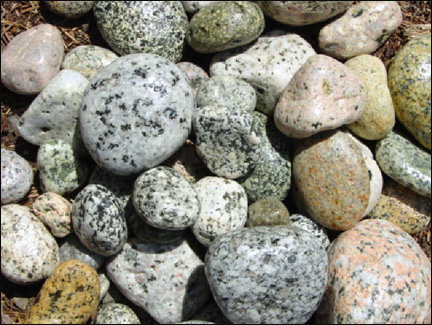
Although most of this melange of cobbles started out as lowly depositional sand, these glassy rocks endured sweltering heat and enormous pressures in order to metamorphose into the beautiful Quartzites you see before you today! On a more serious note, there is some Quartz and other igneous rocks in here as well.
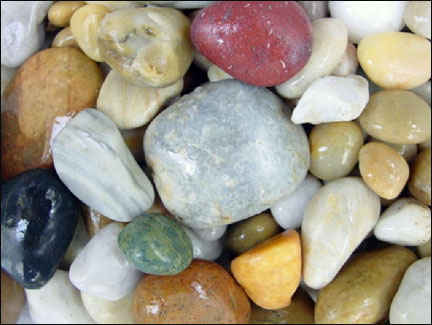
And coming all the way from the spreading Pacific Oceanic Ridge, taking 200 million years to get here, it’s Basalt! Fine-grained basalt has a good reputation for withstanding rapid heating and cooling amongst abos in the field.
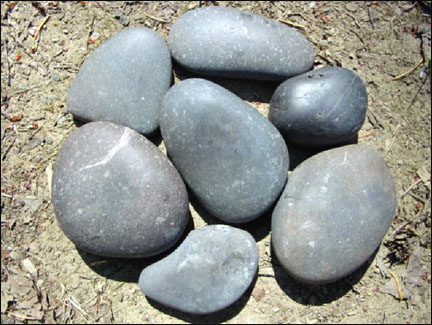
Heating Up the Rocks
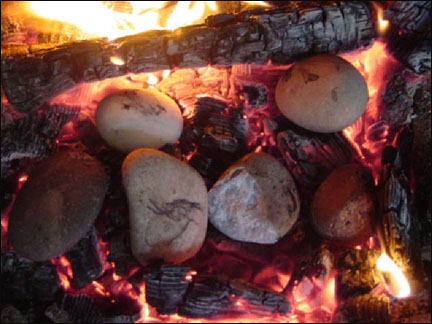
Got my coal-burned Western Red Cedar cooking vessel ready, in which I’ll test the hot rocks.
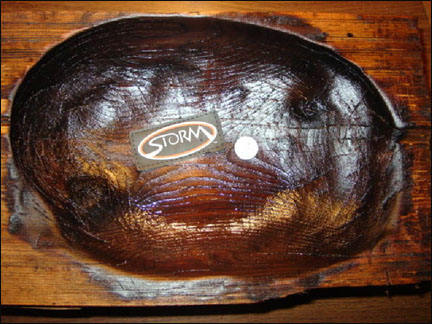
Wooden tongs are quite useful in handling the heated stones. Notice the steam escaping from the bottom of the rock as it hits the lake.
I love those tongs. Made from Yellow Cedar (Chamaecyparis nootkatensis) . . . . lightweight, easy-to-carve . . . . just the right width to afford a strong purchase on it when handling an awkwardly-shaped rock.
